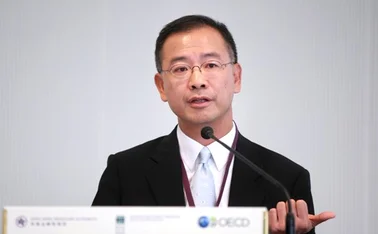
Kuroda: future need not be fully centralised or decentralised
BoJ governor says both approaches to market infrastructure have pros and cons

The future design of market infrastructure need not be a pure centralised or decentralised system, but can combine elements of both, the governor of the Bank of Japan said today (October 4).
Haruhiko Kuroda said there were clearly advantages to maintaining aspects of a centralised model, especially where an entity – such as a central bank – had gained people’s trust as a central book-keeper. Nevertheless, decentralised systems such as distributed ledgers could bring advantages in terms of cost
Only users who have a paid subscription or are part of a corporate subscription are able to print or copy content.
To access these options, along with all other subscription benefits, please contact info@centralbanking.com or view our subscription options here: http://subscriptions.centralbanking.com/subscribe
You are currently unable to print this content. Please contact info@centralbanking.com to find out more.
You are currently unable to copy this content. Please contact info@centralbanking.com to find out more.
Copyright Infopro Digital Limited. All rights reserved.
As outlined in our terms and conditions, https://www.infopro-digital.com/terms-and-conditions/subscriptions/ (point 2.4), printing is limited to a single copy.
If you would like to purchase additional rights please email info@centralbanking.com
Copyright Infopro Digital Limited. All rights reserved.
You may share this content using our article tools. As outlined in our terms and conditions, https://www.infopro-digital.com/terms-and-conditions/subscriptions/ (clause 2.4), an Authorised User may only make one copy of the materials for their own personal use. You must also comply with the restrictions in clause 2.5.
If you would like to purchase additional rights please email info@centralbanking.com






